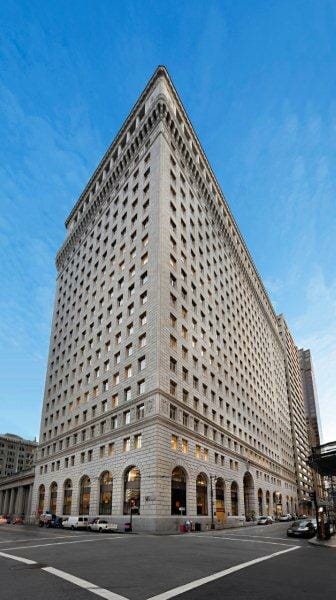
With the black shirt, headset and smart phone all in place, how did Jia go so wrong?
LeEco is a shooting star, and as the Chinese tech conglomerate and would-be Tesla competitor crashes from the heavens, it may just be jettisoning an asset that it talked up as the future home of 12,000 US employees just six months ago.
Entrepreneur Jia Yueting’s LeEco paid Yahoo $250 million for a 49 acre (20 hectare) property in Santa Clara, California in June last year, envisioning the Silicon Valley site as the eventual US campus of a company commonly referred to as the Netflix of China. Now, according to a report in Reuters, LeEco is in the process of selling off its dream campus to Chinese real estate developer Genzon Group for $260 million.
The Silicon Valley property sale follows just two months after another mainland developer, Sunac Real Estate, saved LeEco from apparent insolvency by purchasing a $2.2 billion stake in the once high-flying tech company.
Genzon Makes Third Major US Investment

Genzon bought the former Standard Oil Building at 225 Bush Street in San Francisco for $350 mil in 2014
For Genzon, which operates as a niche developer of golf courses in China, the Santa Clara site will be its third Bay Area investment in the last three years.
Two years ago the Shenzhen-based developer backed the $47.7 million acquisition of a 71,000 square metre (767,000 square foot) business park project in the Bay Area city of Burlingame, just south of San Francisco. The buyers said at the time that they would be developing the commercial complex as a US home for Asian companies.
Genzon confirmed to Reuters that it was in discussions with LeEco for the Santa Clara project, but did not discuss details. Bay area property brokers who spoke with Mingtiandi regarding the potential transaction said that the two companies had reached their agreement within China and that local parties were not directly involved.
The resort developer announced its arrival in the Bay Area in 2014, making one of the biggest foreign acquisitions of US real estate of the year when it bought a landmark office block in San Francisco for $350 million.
LeEco Misses Out on Creating the Export Market for Ghost Cities
A timely transaction could work in LeEco’s favor not only by providing apparently much-needed cashflow, but also by saving the would-be tech powerhouse from being the first company to export a Chinese ghost city to the United States.
In a blog post dated October last year, when the company was already short of money, Jia spoke of his vision for the Silicon Valley campus. “We employ more than 500 in the U.S. today, with more being added each week,” Jia said. “This property will be an EcoCity that houses 12,000 employees and offers an open campus where all – including the community – will be welcome.”
Now LeEco has reportedly laid off half of that crew of 500 in the US, and numerous suppliers have complained of going unpaid.
Trading in shares of Leshi Internet Information, LeEco’s listed-vehicle, was suspended on the Shenzhen exchange for the second time last year on December 6th, after Jia told LeEco employees in a letter that the company had overextended its finances by expanding too quickly.
Then in January, a mainland supplier to LeEco’s smartphone division sued the company for RMB 51.74 million in unpaid bills.
Officials from the state of Nevada, which provided subsidies for the company’s $1 billion Faraday Future high tech car making facility gave their own take earlier this year in the China Daily. “It’s clear Mr Jia doesn’t have any money, it’s clear that Leshi isn’t making money. That’s the reason for my concern,” Nevada state treasurer Dan Schwartz told the official mainland newspaper. Faraday had stopped work on the auto factory in November following complaints from creditors of unpaid bills.
LeEco’s most acute cash problems were relieved in January when Sunac boss Sun Hongbin struck his $2.2 billion deal to buy minority stakes in LeEco’s Leshi Internet Information and Technology Corp, and its Leshi Pictures film production unit, along with taking a 33.5 percent stake in LeEco’s Leshi Zhixin, which makes the company’s Internet TV systems.
Leave a Reply